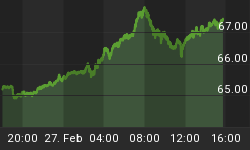Despite the managed media campaign by Tokyo Electric Company, the Japanese government and nuclear industry flacks worldwide, the 11 March 9.0 on the Richter scale earthquake, followed by a tsunami that off-lined TEPCO's six reactor Daiichi Fukushima nuclear power complex represents a global mortal blow to the nuclear power industry, which had been optimistic of a renaissance following worldwide concerns about global warming. While TEPCO's PR spin doctors along with Japanese government flacks will continue to parsimoniously dribble out information about the real situation at the stricken reactors while blandly assuring the Japanese population and the world that all is well even as nuclear lobbyists bleat "it can't happen here," all but the most obtuse are beginning to realize that catastrophes at nuclear power facilities, whether man-made (Chernobyl) or natural (Fukushima) have radioactive pollution consequences of potentially global significance.
It is the long-term consequences of the dispersal of radioactive reactor core fissionable material and, in the case of Fukushima, spent reactor fuel, that no amount of spin doctoring can diminish, and far from being environmental propaganda from eco-terrorists, has been a concern of specialists for decades, but those voices rarely reach the mainstream media, many of which are owned by massive corporations deeply invested in the revival of nuclear power.
It is time that some of those voices move mainstream. Admiral Hyman G. Rickover, known as the "father of the U.S. nuclear navy," sheparded the U.S. Navy into the nuclear age, attracting the best and the brightest (including a future president, Jimmy Carter) around him to advance nuclear propulsion of such a quality engineering level that the Navy has a perfect safety record, a legacy of Rickover's 63 year career. Nonetheless Rickover remained doubtful about nuclear power, delivering "On the hazards of nuclear power. Testimony to Congress" on 28 January 1982. His insights are worth quoting in detail.
"I'll be philosophical. Until about two billion years ago, it was impossible to have any life on earth; that is, there was so much radiation on earth you couldn't have any life - fish or anything. Gradually, about two billion years ago, the amount of radiation on this planet-and probably in the entire system-reduced and made it possible for some form of life to begin... Now when we go back to using nuclear power, we are creating something which nature tried to destroy to make life possible... Every time you produce radiation, you produce something that has a certain half-life, in some cases for billions of years. I think the human race is going to wreck itself, and it is important that we get control of this horrible force and try to eliminate it... I do not believe that nuclear power is worth it if it creates radiation. Then you might ask me why do I have nuclear powered ships. That is a necessary evil. I would sink them all. Have I given you an answer to your question?"
An even darker picture is outlined in Chernobyl: Consequences of the Catastrophe for People and the Environment, a translation of a 2007 Russian publication by Alexei V. Iablokov, Vassili B. Nesterenko, and Alexei V. Nesterenko, based on 5,000 scientific articles out of 30,000 published in Russia between 1986 and 1992 and published in 2009 by the New York Academy of Sciences in their Annals of the New York Academy of Sciences series. The 5,000 scientific articles were not used in 2005 estimate of about 4,000 Chernobyl deaths by the United Nations Scientific Committee on the Effects of Atomic Radiation (UNSCEAR). In stark contrast, the Russian study concluded a 1986-2004 global death toll approaching a million, nearly 170,000 of them in North America.
What is important here is that the immediate deaths among the workers at both Chernobyl and Fukushima are but a fraction of the illnesses and mortality resulting from exposure to radioactive material dispersed by the accidents. The Achilles heel of the nuclear power industry was and remains how to deal with the radioactive waste left over after generating power, a reality that no amount of PR can spin.
Finally, for those with the courage to face the visual evidence of the consequences of future generations of nuclear reactor accidents, one need go no further than Paul Fusco's photographs and 11 videos of the children subsequently born within Chernobyl's radiation zone in Ukraine and Belarus. One can be seen here at YouTube:
http://www.youtube.com/watch?v=WAxTZD9sk40&playnext=1&list=PLEACAB31F38619908
Is this the future the world truly wants? What part of the evidence above does the nuclear power industry not understand? The answer is simple - money, the trillions already invested over the last five decades in the industry and the potential loss of trillions more if the global nuclear industry is shuttered. As Fukushima continues its slow radioactive bleed-out, one of the few certainties is that we're likely to see many more images like Fusco's in the years to come.
By Dr John C.K. Daly for OilPrice.com. For more information on oil prices and other commodity related topics please visit www.oilprice.com















